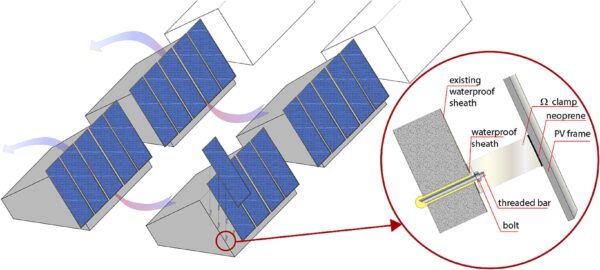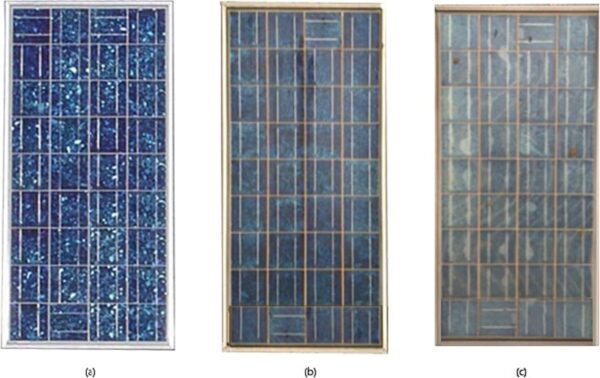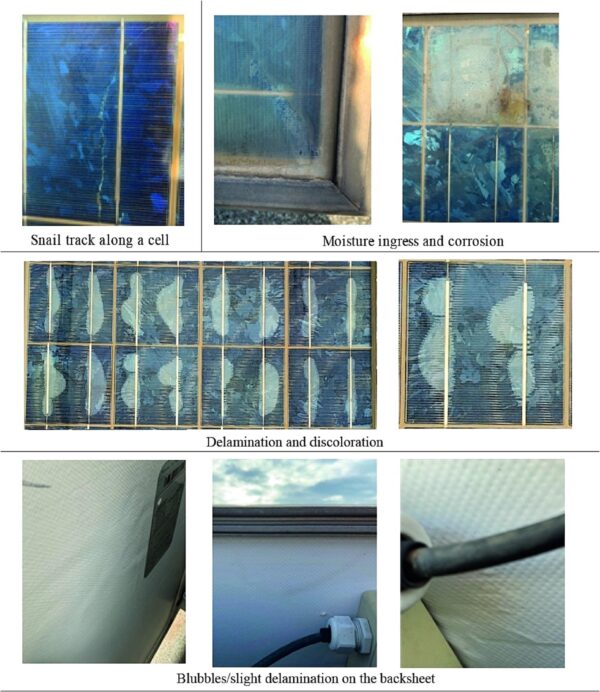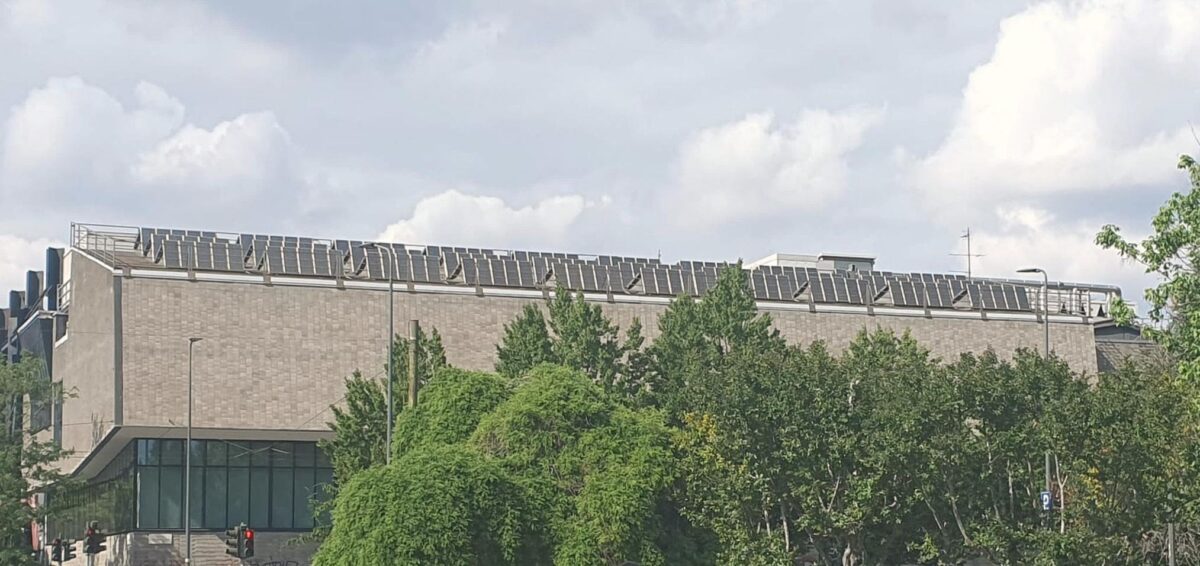A group of researchers from the Polytechnic University of Milan has conducted a long-term reliability assessment on the solar modules of the country’s first publicly-funded building-integrated photovoltaic (BIPV) project.
The 11 kW system was installed in December 2001 on a building of the Polytechnic University of Milan, and was continuously monitored during its operating life.
“The present research study focuses on the analyses of the key features and performances of the PV modules of the abovementioned system after 20 years of operation to outline the main effects resulting from long-term operating conditions that could directly impact modules’ efficiency and reliability,” the academics said.
In the paper “Long-term reliability of photovoltaic c-Si modules – A detailed assessment based on the first Italian BIPV project,” published in Solar Energy, the scientists explained that the solar array consists of 150 polycrystalline photovoltaic panels in an anodized aluminum frame provided by Shell Solar, a manufacturer that doesn't exist anymore. Each module has a peak output of 73 W and an efficiency of 10.6%.
The solar array is south-oriented and has a tilt angle of 65 degrees. The modules were placed on what had formerly been 30 skylights with a ventilated gap of 10 cm. “Due to waterproof issues, which caused water infiltration, the glass surfaces on the north side of the skylights were covered and sealed with a waterproofing membrane, resulting in the loss of their original purpose,” the researchers explained. “The PV system has been specifically designed to be placed over the obscured side of the sheds.”

Image: Polytechnic University of Milan, Solar Energy, Creative Commons License CC BY 4.0
The research group conducted the first detailed assessment of the BIPV system in 2014, at the end of its wear-out phase, and a second one in 2021, at the end of its warranty period. The latter consisted of an on-field inspection with the naked eye and an infrared (IR) camera. After it was finalized, seven modules were transferred to a laboratory in Switzerland that performed an I-V characterization test and an electroluminescence imaging analysis.
“Delamination and chalking are the most widespread alterations since they interest all modules of the plant,” the researchers explained. Delamination occurs when different layers lose their adhesive properties, while chalking is the formation of white powder on the outer backside layer due to the photothermal degradation of the back sheet polymer.
“In 12% of the modules, delamination is limited to less than 25% of the surface while for the remaining 88%, it is above this threshold, but never exceeding 50%,” the researchers emphasized, noting that the three panels affected just by delamination and chalking, among the tested modules, all show an average annual degradation rate over 20 years lower than 0.8 % per year.

Image: Polytechnic University of Milan, Solar Energy, Creative Commons License CC BY 4.0
The group also considered the results obtained in 2014 and found that delamination occurred with a nonlinear trend, and that it increased relatively in the last seven years of operation. One module, for example, saw its average annual degradation rate rise from 0.63% per year in the first 13 years to 1.67% per year in the last 7 years.
The analysis also revealed that heavy encapsulant discoloration affected around 40% of the modules, and snail tracks appeared on 10%. Just one module from over 150 showed severe fault, as water entered the junction box, resulting in corrosion.
“Obtained results confirm the reliability of c-Si technology, stressing the importance of careful monitoring especially after the 15th year, when an increase of the degradation rate might occur,” the scientists concluded.

Image: Polytechnic University of Milan, Solar Energy, Creative Commons License CC BY 4.0
This content is protected by copyright and may not be reused. If you want to cooperate with us and would like to reuse some of our content, please contact: editors@pv-magazine.com.



By submitting this form you agree to pv magazine using your data for the purposes of publishing your comment.
Your personal data will only be disclosed or otherwise transmitted to third parties for the purposes of spam filtering or if this is necessary for technical maintenance of the website. Any other transfer to third parties will not take place unless this is justified on the basis of applicable data protection regulations or if pv magazine is legally obliged to do so.
You may revoke this consent at any time with effect for the future, in which case your personal data will be deleted immediately. Otherwise, your data will be deleted if pv magazine has processed your request or the purpose of data storage is fulfilled.
Further information on data privacy can be found in our Data Protection Policy.